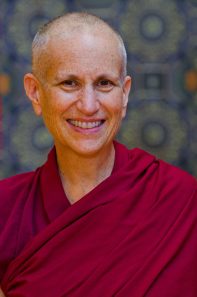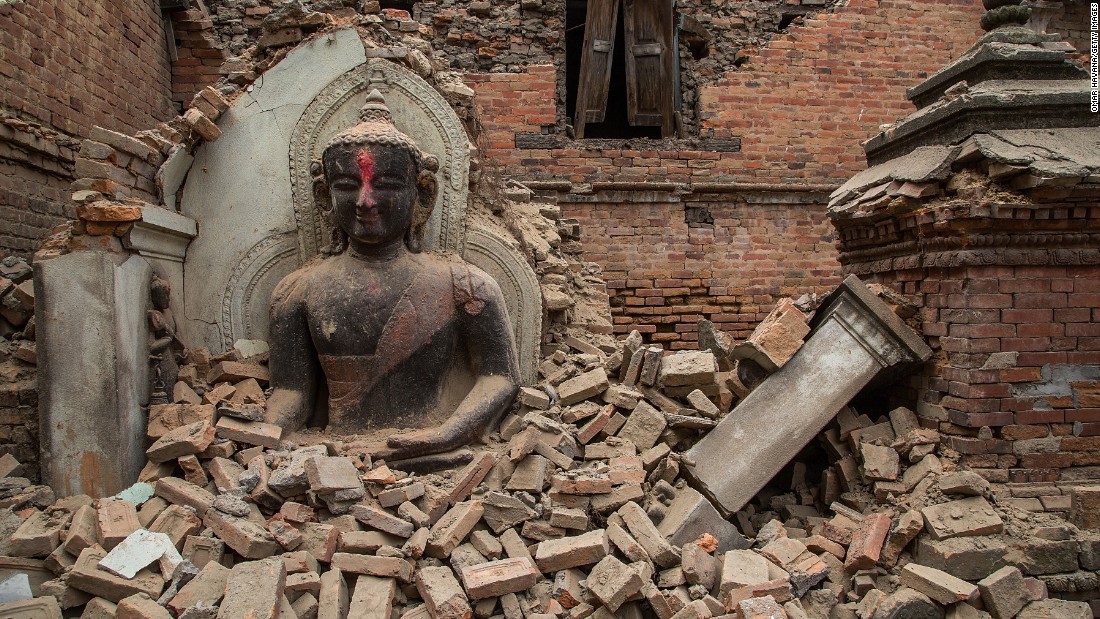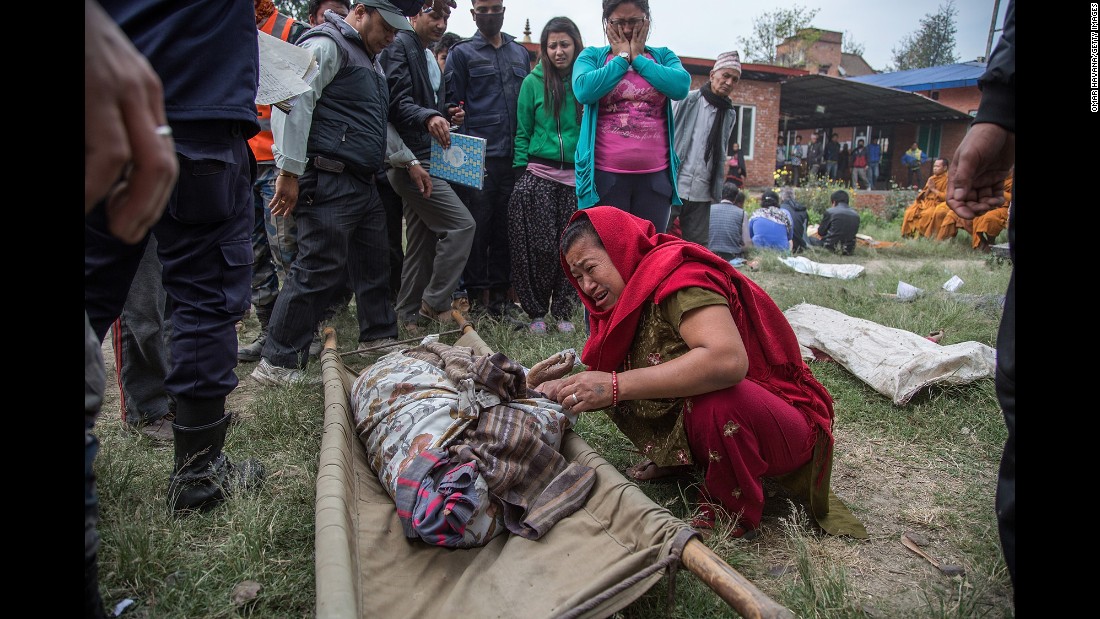You can make a donation to the Nepal Earthquake Emergency Appeal HERE.
Monday, 27 April 2015
Wednesday, 22 April 2015
Note - New Video
I've just posted a fascinating short video in our Video section entitled, "What if the Homeless Gave You Money?"
The premise of the piece is to see how people feel about themselves when someone who is classified as "lesser" than them on the social scale offers them money."
The differing reactions are revealing.
The premise of the piece is to see how people feel about themselves when someone who is classified as "lesser" than them on the social scale offers them money."
The differing reactions are revealing.
Friday, 17 April 2015
NEW MOON - Compassion
 One who finds refuge in the Buddha
One who finds refuge in the Buddhain the Dhamma and in the Sangha
sees with penetrating insight
suffering, its cause, its release
and the Way leading to true freedom.
Dhammapada 190 - 191
Sometimes it is a case of insight leading to compassion; at other times it could be compassion which leads on to insight. Either way, if our hearts truly trust that freedom is possible, then everyday life is the teaching. Sitting on a bus, for example, observing those around us, try opening to the universality of suffering. Seeing how we are all in this together can lead to an understanding of selflessness. There really is no ‘my’ suffering or ‘your’ suffering, there is just suffering. Or perhaps it happens the other way around: our commitment to the Refuges reveals a clear perspective on how clinging causes suffering, giving us a sense of the shared sadness of unawareness – compassion.
Wednesday, 15 April 2015
Dr. B. R. Ambedkar, Famous Indian Buddhist Commemorated
This from todays Huffington post......
B. R. Ambedkar's 124th birthday has been marked with colourful celebrations in India with thousands of people commemorating the life of the famed social reformer.
Bhim Rao Ambedkar, an 'untouchable', or Dalit, who converted to Buddhism was a prominent Indian freedom fighter, and the chief architect of the Indian Constitution, which outlawed discrimination based on caste.
Born into a poor family, Ambedkar spent his whole life fighting against social discrimination in the caste system during and after British colonial rule, which ended in 1947. He is also credited with having sparked the Dalit Buddhist movement.
B. R. Ambedkar's 124th birthday has been marked with colourful celebrations in India with thousands of people commemorating the life of the famed social reformer.
Bhim Rao Ambedkar, an 'untouchable', or Dalit, who converted to Buddhism was a prominent Indian freedom fighter, and the chief architect of the Indian Constitution, which outlawed discrimination based on caste.
Born into a poor family, Ambedkar spent his whole life fighting against social discrimination in the caste system during and after British colonial rule, which ended in 1947. He is also credited with having sparked the Dalit Buddhist movement.
Thursday, 9 April 2015
The Grand National - a Plea
I have just received the following email from a Sangha member who recently moved to the mainland, it needs no further comment other than to say that I have also added a link in our "Useful Buddhist Sites" list to the Dharma Voices for Animals website.....
It is the time of year when I climb on my soapbox and I’m afraid I cannot apologise for it. If you are intending to bet on the Grand National or take part in a sweepstake, please please do not. More than 40 horses in the past decade alone have had fatal falls at Cheltenham and Aintree, with the National having the most. As I have recently broken a limb I was trying to imagine what it must be like for a horse who suffers the same fate. It has been forced to the limit of its endurance and suddenly finds itself immobile on the ground, uncomprehending. No kind paramedics for them just screens and still the tumultuous noise all around until the vet arrives to shoot them. Why must this happen? Purely greed and even one pound bet on this race perpetuates it. I know many of you would never bet but perhaps you know others who do and perhaps you may find an opportunity to point out this unnecessary slaughter.
It occurs to me that when we have finally used up the oil or abandoned it to save the planet, we may have to return to the horse for transport and farming and haulage and all the other things with which they have aided man for millenia.
It is the time of year when I climb on my soapbox and I’m afraid I cannot apologise for it. If you are intending to bet on the Grand National or take part in a sweepstake, please please do not. More than 40 horses in the past decade alone have had fatal falls at Cheltenham and Aintree, with the National having the most. As I have recently broken a limb I was trying to imagine what it must be like for a horse who suffers the same fate. It has been forced to the limit of its endurance and suddenly finds itself immobile on the ground, uncomprehending. No kind paramedics for them just screens and still the tumultuous noise all around until the vet arrives to shoot them. Why must this happen? Purely greed and even one pound bet on this race perpetuates it. I know many of you would never bet but perhaps you know others who do and perhaps you may find an opportunity to point out this unnecessary slaughter.
It occurs to me that when we have finally used up the oil or abandoned it to save the planet, we may have to return to the horse for transport and farming and haulage and all the other things with which they have aided man for millenia.
Tuesday, 7 April 2015
Good News! Thich Nhat Hanh returns to Plum Village to Recuperate
The medical team at the University Hospital in Bordeaux have given their approval for Thich Nhat Hanh to leave the rehabilitation clinic and return to his Hermitage at Plum Village. Thay was hospitalised for four and half months after he experienced a severe brain hemorrhage last November.
In Plum Village a devoted team of monastic attendants are continuing to support him and care for him 24 hours a day, under the guidance of visiting doctors and nurses. He is receiving on-site physical therapy and speech therapy, and it is hoped that being back in his "spiritual home" will provide favourable conditions to treat his hemiparesis and allow him to make progress in swallowing and recovering his speech.
In Plum Village a devoted team of monastic attendants are continuing to support him and care for him 24 hours a day, under the guidance of visiting doctors and nurses. He is receiving on-site physical therapy and speech therapy, and it is hoped that being back in his "spiritual home" will provide favourable conditions to treat his hemiparesis and allow him to make progress in swallowing and recovering his speech.
Friday, 3 April 2015
FULL MOON - Dilemmas
Dilemmas
Silence does not denote profundity
if you are ignorant and untrained.
Like one holding scales,
a sage weighs things up,
wholesome and unwholesome,
and comes to know both the inner and outer worlds.
Therefore the sage is called wise.
Dhammapada v. 268 – 269
How can we know whether we should act or not act? When faced with a dilemma, the challenge is how to stay tuned to what our heart says, at the same time as being fully open to life’s complexity. Reverting to quietude could be a form of avoidance, but it might also be exactly what is called for. Our outer world is fraught with injustice and inequality; naturally we want to help. Engaged action could be our response, or it might be silent contemplation. It is essential that our decision to act or not act arises out mindful consideration, not out of aversion, and as always, in accord with our precepts.
Silence does not denote profundity
if you are ignorant and untrained.
Like one holding scales,
a sage weighs things up,
wholesome and unwholesome,
and comes to know both the inner and outer worlds.
Therefore the sage is called wise.
Dhammapada v. 268 – 269
How can we know whether we should act or not act? When faced with a dilemma, the challenge is how to stay tuned to what our heart says, at the same time as being fully open to life’s complexity. Reverting to quietude could be a form of avoidance, but it might also be exactly what is called for. Our outer world is fraught with injustice and inequality; naturally we want to help. Engaged action could be our response, or it might be silent contemplation. It is essential that our decision to act or not act arises out mindful consideration, not out of aversion, and as always, in accord with our precepts.
Thursday, 2 April 2015
Should Buddhists Vote?
 With the General Election now “only” five weeks away I felt that it was an opportune moment to forward an emailed article that I received from a Sangha member a while back. It is entitled “Should Buddhists Vote?” and is by Thubten Chodron.
With the General Election now “only” five weeks away I felt that it was an opportune moment to forward an emailed article that I received from a Sangha member a while back. It is entitled “Should Buddhists Vote?” and is by Thubten Chodron.The article was written from an American perspective in relation to the 2012 U.S. Presidential Election. I have taken the liberty of changing “Democrat” to “Labour” and “Republican” to “Conservative” and substituting a well known British personality for an unheard of American one to make the piece compatible with the U.K. situation (for the original article click HERE).
I’ll also take this opportunity to restate our editorial policy re: politics. "It is Not the purpose of this site to campaign on political issues, however as a Buddhist site we will continue to promote peace and the welfare of all beings by any appropriate non-violent means".
When the Buddha established the Sangha, the monastic community, each person ordained ten years or more was considered sufficiently informed about monastic lifestyle and precepts and was thus accorded a voice when the assembly met to decide important matters. Extending this by analogy to present circumstances, Buddhists who are informed citizens should vote. By sharing our knowledge, voting is one way to contribute to the welfare of society.
A common misunderstanding exists that the Buddha wanted his followers to leave society. This is incorrect. Where can we ever live where we are entirely disconnected from other living beings? In a monastery, in a Dharma centre, in a family, we are always in relationship to those immediately around us as well as to the broader society and to all sentient beings. Even in a remote hermitage, we still live in relationship with each and every living being. Our challenge is to make this relationship a healthy one, physically, verbally, and mentally. With a pure motivation, voting and being politically active can be ways of sharing our vision, and values with others, in an attempt to stop harm and create happiness in society.
The challenges of being an informed voter and a wise citizen are many. For example, how do we keep abreast of current issues without being swept away by the media blitz? How can we learn enough to make wise choices without becoming involved in trivial affairs or allowing attachment and anger arise towards candidates and their views? This involves discipline on our part. We need to have a wise relationship with the media, knowing how much we can handle, discerning media excesses, and halting our infatuation, distraction, and addiction to TV, radio, newspapers, and the Internet. We only develop this balance by examining our own minds, and by trial and error in our daily lives.
Another challenge is forming wise views without clinging to them as part of our ego identity. “I am a Labour supporter,” “I support affirmative action.” We can all too easily solidify these labels into identities that we then feel compelled to defend. How can we have views and yet make sure our minds are tolerant of others who hold opposing ones? Sometimes it seems to me that some Western Buddhists expect all other Western Buddhists to have similar political views. A woman in our centre had to remind us during a discussion on compassion and politics, that she was a Buddhist and a Conservative.
We must also be mindful not to make the opposition party and its candidates into solid figures that we then disapprove of, ridicule, fear, and even hate. One person once said to me, “I have compassion for almost everyone, but don’t know how to have compassion for Conservatives.” If, in the name of caring about the welfare of all sentient beings, we condemn those who hold different views, we have adopted their mental state: we help our friends (those who agree with our opinions) and are hostile to our enemies (those who have different views). Much meditation is necessary to separate people from their views, knowing that although someone’s views may seem harmful, those people still have the Buddha potential. Repeatedly re-forming our attitudes is required to develop equanimity towards all.
How do we use Buddhist values to inform our political decisions? Or do we first decide what we believe and then select a quotation from the Buddha to validate our opinion? For example, one person could say, “The Buddha believed that people should make their own decisions and be responsible for them. Therefore, as a Buddhist, I am pro-choice.” Another person could say, “The Buddha said killing is a destructive action. Therefore, as a Buddhist, I oppose abortion.” In other hot social and political issues, similar things occur.
Yet another challenge lies in choosing compassionate methods to accomplish our political and social goals. For example, do we boycott Chinese goods and oppose China having Most Favoured Nation status because we want freedom for Tibet? Many people do, yet His Holiness the Dalai Lama opposes such action because it will harm the average Chinese who is not responsible for the government policy on Tibet. As a supporter of freedom for Tibet, do we ban together with Russell Brand who advocates a “free Tibet” and opposes China, but also tells us not to vote?
By now, we have found ourselves deep in questions. Each of us must spend quiet time in reflection, looking at our own mind and coming to our own conclusions. While the cushion leads us to compassionate action in the world, these actions lead us back to the cushion. They are interdependent.
Subscribe to:
Posts (Atom)





